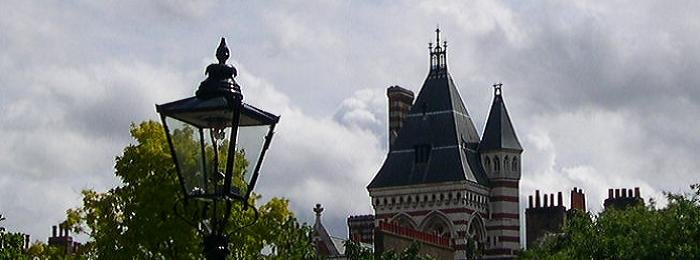They're all at it. The College of Law was granted the power to award degrees last year and has now awarded 599 LLB degrees to students who have completed their GDL and BVC or LPC courses. The Inns of Court School of Law allows BVC students to gain an LLM (in Professional Legal Skills) by completing a 15,000-20,000 word dissertation. Now BPP has also gained degree awarding powers. I understand that they will be offering LLB degrees to GDL students and will provide an option for BVC/LPC students to upgrade to an LLM by completing a couple of extra courses. The big question is what value will these qualifications have to the outside world?
Monday, 24 September 2007
Friday, 14 September 2007
This has made me think...
(You know, it's got me thinking)*. Yes, although it has been rather quiet round here lately (leading to a public rebuke), a number of interesting issues have arisen which have led me off of some tangential thoughts. One subject that has exercised me lately has been that of retribution and rehabilitation. The case of Chindamo started me off on this path. I appreciate that the world has moved on since then, but I must plead the defence of being exceptionally busy as I have started a new job and a new course at the same time, leading to me being quite behind the times at the moment. The issue of retribution and rehabilitation is central to why and to what extent we punish criminals for their crimes. Once they have served their time then the retributive component of that punishment must be over. This is why I have no issue with Learco Chindamo's right to stay in the UK upon his future release from prison. The argument could be made that the sentence itself is too short, but that is an entirely different issue. For what it's worth I think that the length of sentence is appropriate given his age, but it is an argument that I could entertain. What I cannot see is what the purpose of expelling him would be, when he is to all intents and purposes a UK national.
One of the most fascinating aspects of studying and working with the law is how it makes you think, challenges your preconceptions and then forces you to acknowledge that you may have been wrong. It's probably true to say that at certain levels the academic study of many subjects does this too, but what I have noticed with law is particularly how my own internal inconsistencies of argument are challenged. This leads me back to Chindamo. I have few difficulties in accepting that upon his release he should be allowed to try and build as normal a life as any other murderer. However, my initial reaction when I first heard that Lee Hughes was to be signed by Oldham Athletic FC was an outbreak of moral outrage. Hughes was a moderately succesful forward (0 goals in 23 Premier League games) whose chairman used to reward his goal scoring feats with gifts of fast cars. This proved to be a particularly bad idea when his Mercedes CL500 was involved in a crash which killed a passenger in another vehicle instantly. Another passenger died over a year later. Hughes went on the run for a day. Publawyer will wisely avoid to suggest that this would allow the Jack Daniels in his bloodstream to dissipate. During his incarceration he somewhat inevitably found religion and is now a 'changed man'. While I feel that the sentence (six years) is atrociously light I also have to accept that I cannot square my gut feelings on this with my thoughts on Chindamo. Unlike Oldham's chairman Simon Blitz I cannot cowardly refuse to pass moral judgement, but I can admit that once his sentence is complete perhaps Hughes does have the right to resume his career. I sometimes naively cling to the ideal the professional sportsmen should act as role models, but they are, at least from one perspective, all businessmen. Of course the other perspective is that football clubs are all institutions with their roots in the local community and should bear this in mind rather than scrambling mindlessly to reach the soul sapping money of the advertisers. Once they lose interest clubs are going to realise that all they have left is the fans.
Hughes has so far only played one game for Oldham, playing all 90 minutes of a 4-1 defeat to Hartlepool. Perhaps his punishment is still ongoing.
There are a couple of interesting current American cases to contrast these with. One is Michael Vick who is unlikely to play professional American Football again after his guilty plea to dog fighting and gambling charges (although note that the NFL's main objection is to the gambling not the animal cruelty), the other is the case of Scott McCausland. McCausland was convicted of piracy and upon his release from prison is only allowed to use a computer with monitoring software installed forcing him to use Windows. Cruel and unusual, anyone?
*10 indie prestige points to the first person to identify this line. Don't just google it, you're only cheating yourselves. Anyway if you do cheat how do you sleep? How do you last the night and keep the dogs at bay?
Posted by
The Chief
at
11:14
3
comments
![]()
Labels: crime, punishment
HR Update
I missed this when it first came out, but courtesy of the Consilio updater here is the latest Joint Committee on Human Rights report. It is 107 pages long so might be one for a lengthy train journey, but the topic (Older People in Healthcare) is vitally important and one of the areas where Human Rights legislation can potentially make a great difference, but which are traditionally ignored in the media hysteria about KFC for perps and convicts getting released when they've finished their sentences.
Posted by
The Chief
at
10:06
0
comments
![]()
Labels: hra

